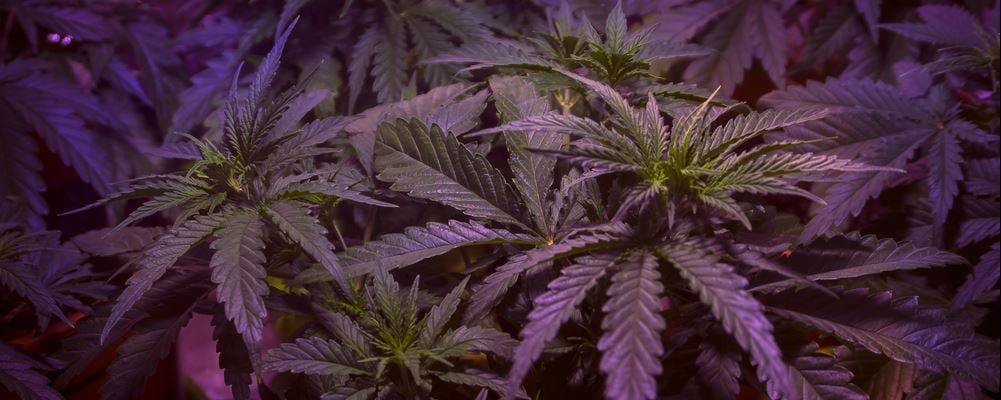How The Use Of Cannabis Reduces Stress
Published :
Jun 14, 2017
Categories :
Cannabis news
• Medical cannabis

Cannabis may be a natural and safe method of helping to neutralise stress. This is due to compounds within the plant, such as THC, that activate receptors in the human body, that lower feelings of stress and anxiety.
Marijuana is gaining huge recognition and popularity as a legitimate and effective herbal medicine, to the degree that numerous countries and regions allow its use as a medicinal substance in order to treat a plethora of disorders. As well as having a place among physical ailments, such as Crohn's disease and chronic pain, cannabis also spills over into the realm of mental disorders and has seen widespread application as a potential remedy to anxiety and depression.
As well as these, cannabis has shown to have the potential to combat something almost all of us face on a day to day basis, the sensation of stress. Now, stress may come in a couple of forms. People with a college deadline or approaching work interview might feel stress as this date approaches, yet it might all melt away after the event in question has past. Other people may suffer from chronic stress, perhaps there job or family life never gives them time to properly rest and recuperate, leading to a possibly harmful build up of stressful situations and emotions. If you suffer from any kind of stress, marijuana might be suitable for you as a possible solution.
With almost zero side effects coupled with profound effectiveness, it offers the best natural choice possible in comparison to medications that might lead to harm and addictions. Before we explore how exactly weed can ease stress, let's cover what stress actually is.
WHAT IS STRESS?
So, stress has a rather awful reputation, and rightly so in most cases. However, it does exist for a reason. The stress response played a vital role in our primordial past and without it our ancestors may not have survived. Stress and the fight or flight response are closely intertwined, when our ancestors encounter a wild predator or an immediate danger, our bodies are given a kick-start of hormones such as adrenaline, cortisol and norepinephrine, that prepare the body for fast and hard physical action, such as sprinting away at full speed or engaging in a physical fight to the death.
The big difference here is that these situations may have been rare, thus this hormonal cocktail and the stress response itself would not have plagued the human body. Today we may still rely on this reaction during times of trauma or emergency, these are indeed appropriate times to experience such extremes. However, modern life also triggers these chemicals in rather inappropriate situations. Work, relationships and financial difficulty are examples of areas, that may lead to increased stress hormones and stressful feelings over prolonged periods of time, perhaps in persistent loads that our bodies did not evolve to deal with.
This can have a negative effect on our physical and mental states. Stress can manifest symptoms such as low energy, headaches, insomnia, ache and pains and even low sexual desire and libido. The hormone cortisol can lead to increased blood pressure when we are exposed to it long term. It might also lead to decreased immune function, carbohydrate cravings and a buildup of fat deposits.
Obviously nobody wants to feel this way, but for many it is merely a reaction to the life we live. So how exactly can cannabis help to tackle this scenario? Well, it certainly can’t alter the source of the stress we feel, but it definitely can help reduce the sensation and help us to manage it all the more efficiently.
CANNABIS VS STRESS
The stereotypical “surfer dude” with long blonde locks and a shack by the beach is the epitome of a chilled stoner. Weed's effect to produce a relaxed state of mind is well known, almost to a comical degree. Delving beyond personal experience, there is some pretty solid science emerging, that is linking the relaxing aspects of consuming cannabis to stress and anxiety busting properties. The foundation behind all of this is the presence of a certain system within the human body, that works directly with compounds found within cannabis, known as cannabinoids.
This is known as the endocannabinoid system, a group of receptors, that bind with cannabinoids and allow them to have profound effects on the body. This system also interacts with endogenous compounds within the body, that are chemically similar to cannabinoids, known as endocannabinoids.
A paper published in the journal Trends in Pharmacological Sciences states, “A long-standing literature linking endocannabinoids (ECBs) to stress, fear and anxiety has led to growing interest in developing novel anxiolytics targeting the ECB system”, adding, “Cannabis is one of the most widely used drugs in the world, with historical records dating use in Eastern cultures back millennia. Cannabis and its derivatives have profound effects on a wide variety of behavioural and neural functions, ranging from feeding and metabolism to pain and cognition. However, epidemiological studies have indicated, that the most common self-reported reason for using cannabis is rooted in its ability to reduce feelings of stress, tension, and anxiety.”
It is believed, that one of the roles of the endocannabinoid system is to naturally regulate feelings of anxiety through releasing endogenous chemicals similar to those found within the cannabis plant itself. There are many identified cannabinoids within the marijuana plant, however the most well known and noticeable for its psychoactive effects is THC. Interestingly, there is an endogenous molecule, namely anandamide, that is extremely chemically similar to THC.
Anandamide is associated with feelings of bliss, positivity and may be the basis for the classic feeling of a runner's high. Both anandamide and THC act on the same pathways in the brain and by doing so help to mitigate feelings of stress and anxiety. It is quite incredible to realise that THC, a molecule from an external plant, is able to create such profound effects within the body due to interacting with such a specific system based on essentially mimicking compounds that already exist within the body.
Another paper, published in the journal Neuropsychopharmacology, took a look at the links between cannabis and stress. The authors state: “Repeated stress is on the the environmental factors that precipitates and exacerbates mental illnesses like depression and anxiety as well as cognitive impairments. We have previously shown, that cannabinoids can prevent the effects of acute stress on learning and memory. Here we aimed to find whether chronic cannabinoid treatment would alleviate the long-term effect of exposure to chronic restraint stress on memory and plasticity as well as on behavioural and neuroendocrine measure of anxiety and depression.”
This particular study concluded with positive and interesting results, with the authors explaining, “Our findings suggest, that cannabinoid receptor activation could represent a novel approach to the treatment of cognitive deficits, that accompany a variety of stress-related neuropsychiatric disorders”.





knipsel.JPG)




































